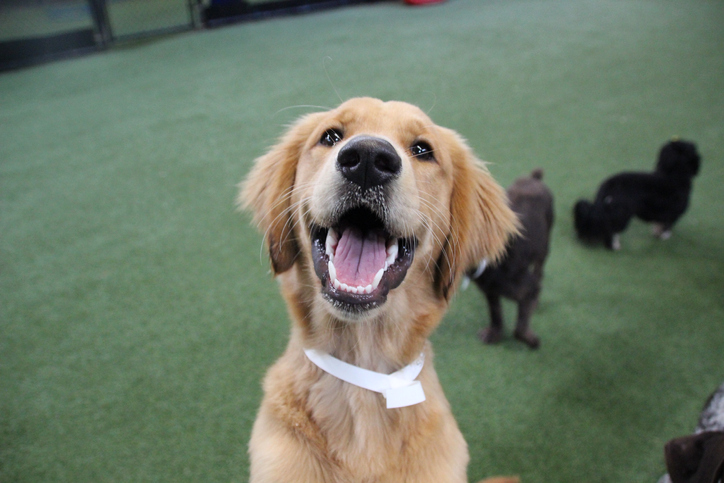Puppy Classes and Much More
Welcoming a bouncy and sweet puppy into your household can feel like one of the biggest joys in the world. If you’re a new puppy owner, you certainly have a lot on your plate. You may want to learn all about dog grooming, dog daycare and puppy classes in general. It’s especially crucial to think at length about puppy training matters. If you want to raise a content and well-adjusted young dog, you should zero in on proper training techniques. You should make sure that you train your furry buddy in the correct order as well. What exactly is the first thing you should train a little puppy?
Positive Reinforcement
If you want to kick off your puppy training journey both intelligently and effectively, you should concentrate on positive reinforcement. Positive reinforcement can help puppies grasp exactly what you want out of them. It can also provide them with the confidence they need to master various big things in the future.
The core of training a puppy needs to revolve around positive reinforcement. This kind of reinforcement is all about providing a puppy with an incentive that can motivate the specific behavioural patterns you desire. It’s comparable to giving a puppy a salary for a full-time job.
The primary aim behind positive reinforcement is in no sense to trick a young dog into acting in a certain manner. Instead, the aim is to train him or her to respond to something that offers tangible value. That “something” is any sort of reward.
It’s imperative to steer clear of punishment techniques during the positive reinforcement training journey. Just say no to ever screaming at your puppy. Just say no to leash corrections in general. Punishing a dog can be problematic for numerous reasons. It can make them feel bewildered. It can make him or her feel uncertain as well. If you punish a puppy, you run the risk of him or her simply not grasping your desires and objectives. The most capable dog trainers are the individuals who understand that time is everything. You don’t want to rush the training journey.
Positive reinforcement is a pretty broad thing. It can involve any reward your puppy appreciates, period. The majority of individuals rely on food items. If you find a tasty treat that makes your puppy go wild, then it may be the perfect positive reinforcement training device.
What happens if you’re not a fan of the use of food for positive reinforcement training purposes? That’s completely fine. Perhaps your puppy responds better to other kinds of rewards that are out there. Maybe your cutie adores hearing you praise him using a warm and enthusiastic vocal tone. Maybe he adores playtime with a particularly memorable chew toy. Note, too, that it’s 100 percent up to you to teach your dog to appreciate praise. Put a delicious treat right in front of your puppy. Use an upbeat and cheerful voice as you declare something along the lines of “good dog!” Doing this will make your dog understand that praise is positive and desirable. It will teach your pet that praise is a genuine reward.
Puppy Training and Timeframe Considerations
If you want to initiate puppy training at the perfect time, you don’t have to wait long at all. You can commence straightforward training practically immediately. Owners typically do so when puppies are roughly eight weeks in age.
It’s vital to go for training sessions that are on the short side. Make sure they’re never longer than between five and 10 minutes in total. Make sure you conclude the sessions positively no matter what as well. What happens if your puppy experiences difficulties grasping a new training concept? You can cap off the session by going back to something that she can do extremely well. Pamper your dog using ample praise. Don’t ever lose sight of the fact that positive associations mean everything in the canine training universe.
Once your pet masters the art of positive reinforcement in training, you can go ahead with other things. Your next step may involve instructing your puppy to come to you right after you say his or her name.
